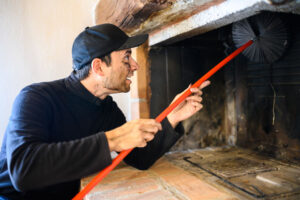Running a hotel in Raleigh, North Carolina, is a challenging yet rewarding endeavor. From managing guest experiences to maintaining facilities and ensuring smooth operations, hotel owners have a lot on their plates. Amidst all this, managing finances can be a daunting task, especially for small hotel businesses. This is where a small business accountant comes in. In this blog post, we’ll delve into the reasons why every Raleigh hotel, regardless of its size, can benefit from the expertise of a small business accountant.
Financial Management
Managing finances is critical for the success of any business, and hotels are no exception. A small business accountant can help streamline financial management processes, including bookkeeping, payroll, and budgeting.
By maintaining accurate financial records, hotel owners can make informed decisions regarding pricing strategies, cost-cutting measures, and investment opportunities.
Additionally, a small business accountant can provide valuable insights into cash flow management, ensuring that the hotel has enough liquidity to cover expenses and invest in growth initiatives.
Tax Compliance
Tax laws and regulations can be complex and ever-changing. A small business accountant with expertise in hospitality can help hotel owners navigate the intricacies of tax compliance.
From filing tax returns to maximizing deductions and credits, an accountant can ensure that the hotel remains in good standing with federal, state, and local tax authorities.
Furthermore, proactive tax planning can help minimize tax liabilities and avoid costly penalties or audits.
Financial Analysis and Planning
In a competitive industry like hospitality, it’s essential to analyze financial performance regularly and develop strategic plans for growth.
A small business accountant can generate financial reports, such as profit and loss statements and balance sheets, to assess the hotel’s profitability and identify areas for improvement.
With this information, hotel owners can devise effective business strategies, such as expansion initiatives, marketing campaigns, or operational improvements, to enhance profitability and market competitiveness.
Regulatory Compliance
Hotels are subject to various regulatory requirements, including licensing, permits, and industry-specific regulations.
A small business accountant can help ensure that the hotel complies with all applicable laws and regulations, reducing the risk of fines, lawsuits, or reputational damage.
Moreover, staying compliant with regulatory requirements demonstrates the hotel’s commitment to ethics, integrity, and customer safety, enhancing its reputation and credibility in the market.
Financial Risk Management
Operating a hotel involves inherent financial risks, such as economic downturns, natural disasters, or unexpected expenses.
A small business accountant can assess these risks and develop strategies to mitigate them, such as establishing emergency funds, obtaining insurance coverage, or diversifying revenue streams.
By proactively managing financial risks, hotel owners can safeguard their assets and ensure the long-term viability of their businesses.
Conclusion
In conclusion, the role of a Raleigh small business accountant in a Raleigh, NC hotel cannot be overstated. From financial management and tax compliance to strategic planning and risk management, accountants play a crucial role in ensuring the financial health and success of hotel businesses. By partnering with a qualified accountant who understands the unique challenges and opportunities in the hospitality industry, hotel owners can focus on delivering exceptional guest experiences while their finances are in capable hands. Investing in a small business accountant is not just a prudent decision; it’s essential for the sustainable growth and profitability of any Raleigh hotel, regardless of its size or scale of operations.



